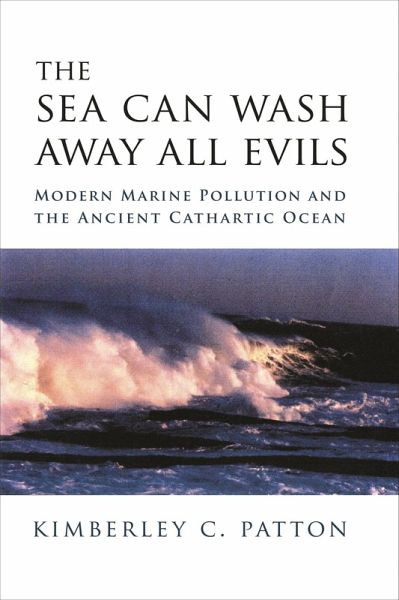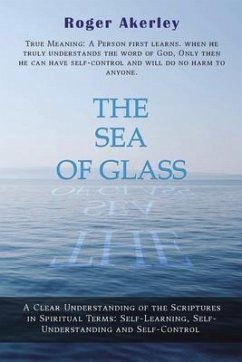
The Sea Can Wash Away All Evils (eBook, ePUB)
Modern Marine Pollution and the Ancient Cathartic Ocean

PAYBACK Punkte
28 °P sammeln!
Kimberley Patton examines the environmental crises facing the world's oceans from the perspective of religious history. Much as the ancient Greeks believed, and Euripides wrote, that "the sea can wash away all evils," a wide range of cultures have sacralized the sea, trusting in its power to wash away what is dangerous, dirty, and morally contaminating. The sea makes life on land possible by keeping it "pure."Patton sets out to learn whether the treatment of the world's oceans by industrialized nations arises from the same faith in their infinite and regenerative qualities. Indeed, the sea's n...
Kimberley Patton examines the environmental crises facing the world's oceans from the perspective of religious history. Much as the ancient Greeks believed, and Euripides wrote, that "the sea can wash away all evils," a wide range of cultures have sacralized the sea, trusting in its power to wash away what is dangerous, dirty, and morally contaminating. The sea makes life on land possible by keeping it "pure."
Patton sets out to learn whether the treatment of the world's oceans by industrialized nations arises from the same faith in their infinite and regenerative qualities. Indeed, the sea's natural characteristics, such as its vast size and depth, chronic motion and chaos, seeming biotic inexhaustibility, and unique composition of powerful purifiers-salt and water-support a view of the sea as a "no place" capable of swallowing limitless amounts of waste. And despite evidence to the contrary, the idea that the oceans could be harmed by wasteful and reckless practices has been slow to take hold.
Patton believes that environmental scientists and ecological advocates ignore this relationship at great cost. She bases her argument on three influential stories: Euripides' tragedy Iphigenia in Tauris; an Inuit myth about the wild and angry sea spirit Sedna who lives on the ocean floor with hair dirtied by human transgression; and a disturbing medieval Hindu tale of a lethal underwater mare. She also studies narratives in which the sea spits back its contents-sins, corpses, evidence of guilt long sequestered-suggesting that there are limits to the ocean's vast, salty heart.
In these stories, the sea is either an agent of destruction or a giver of life, yet it is also treated as a passive receptacle. Combining a history of this ambivalence toward the world's oceans with a serious scientific analysis of modern marine pollution, Patton writes a compelling, cross-disciplinary study that couldn't be more urgent or timely.
Patton sets out to learn whether the treatment of the world's oceans by industrialized nations arises from the same faith in their infinite and regenerative qualities. Indeed, the sea's natural characteristics, such as its vast size and depth, chronic motion and chaos, seeming biotic inexhaustibility, and unique composition of powerful purifiers-salt and water-support a view of the sea as a "no place" capable of swallowing limitless amounts of waste. And despite evidence to the contrary, the idea that the oceans could be harmed by wasteful and reckless practices has been slow to take hold.
Patton believes that environmental scientists and ecological advocates ignore this relationship at great cost. She bases her argument on three influential stories: Euripides' tragedy Iphigenia in Tauris; an Inuit myth about the wild and angry sea spirit Sedna who lives on the ocean floor with hair dirtied by human transgression; and a disturbing medieval Hindu tale of a lethal underwater mare. She also studies narratives in which the sea spits back its contents-sins, corpses, evidence of guilt long sequestered-suggesting that there are limits to the ocean's vast, salty heart.
In these stories, the sea is either an agent of destruction or a giver of life, yet it is also treated as a passive receptacle. Combining a history of this ambivalence toward the world's oceans with a serious scientific analysis of modern marine pollution, Patton writes a compelling, cross-disciplinary study that couldn't be more urgent or timely.
Dieser Download kann aus rechtlichen Gründen nur mit Rechnungsadresse in A, D ausgeliefert werden.













